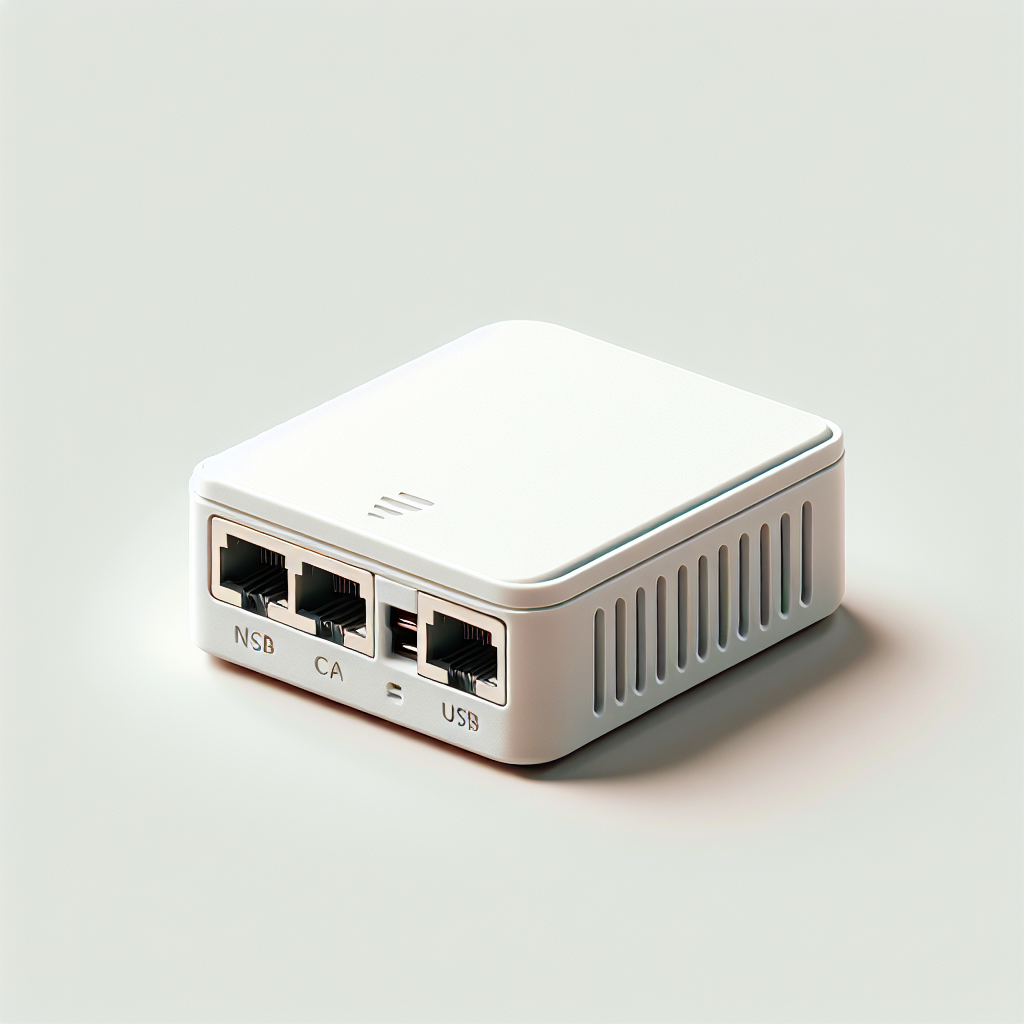
Introduction
In today\’s digitally connected world, having reliable internet connectivity is crucial. However, not all devices come with in-built network adapters that meet every user\’s needs. This is where external network adapters come into play, providing versatile and often more powerful alternatives to internal network solutions. But what exactly is an external network adapter, and how does it benefit you? This article delves into everything you need to know about external network adapters.
Understanding External Network Adapters
An external network adapter is a device that allows computers, laptops, and other compatible devices to connect to different types of networks. External network adapters are often used to provide Wi-Fi connectivity to devices that lack built-in wireless capabilities, or to upgrade the existing capabilities of a device. They can be connected via USB ports or other interfaces such as PCI or Ethernet.
Types of External Network Adapters
External network adapters come in various types, each designed to fulfill different networking needs. Here are the primary types:
- USB Wi-Fi Adapters: These are the most common type, offering easy plug-and-play functionality.
- Ethernet Adapters: These adapters provide wired network connectivity, often at faster speeds than Wi-Fi.
- Bluetooth Adapters: Used to connect devices via Bluetooth technology, useful for connecting peripherals.
- Cellular Adapters: These adapters offer connectivity through cellular networks, often used in portable devices.
Below is a table summarizing the key features of each type:
| Type | Connectivity | Common Use |
|---|---|---|
| USB Wi-Fi Adapters | Wireless | General use, laptops |
| Ethernet Adapters | Wired | Desktops, gaming consoles |
| Bluetooth Adapters | Wireless | Peripherals, headphones |
| Cellular Adapters | Wireless | Portable devices, travel |
Benefits of External Network Adapters
External network adapters come with several advantages that make them indispensable for a wide range of users. Below are some of the key benefits:
Enhanced Connectivity
External network adapters provide enhanced connectivity options, allowing you to connect to different types of networks easily. For instance, USB Wi-Fi adapters can upgrade an older laptop to support faster Wi-Fi standards like Wi-Fi 6, providing a significant boost in internet speed and reliability.
Portability and Flexibility
One of the major advantages of external network adapters is their portability. Unlike internal network cards, external adapters can be easily connected or disconnected, making them ideal for users who frequently switch between different devices or move around. This makes them perfect for travelers and professionals who need reliable internet access wherever they go.
Cost-Effective
Upgrading an entire device to improve network performance can be costly. External network adapters offer a budget-friendly alternative, allowing users to enhance their network capabilities without needing to buy a new device. This is particularly useful for extending the life of older devices.
Easy Installation
Most external network adapters are easy to install, often requiring no more than plugging them into the device\’s USB port. Some models also come with plug-and-play functionality, eliminating the need for additional drivers or software.
Limitations of External Network Adapters
Despite their numerous benefits, external network adapters have some limitations that users should be aware of. Here are a few:
Performance Stability
While external network adapters can significantly improve network connectivity, they may not always offer the same level of stability and performance as internal network cards. Factors like interference and physical obstructions can affect their performance.
USB Port Dependency
Most external network adapters connect via USB ports, which may limit the number of available ports for other peripherals. This can be an issue for users with multiple USB devices.
Security Concerns
External adapters, especially Wi-Fi adapters, can be vulnerable to security threats if not properly configured. It\’s essential to ensure that these devices are updated with the latest firmware and security patches.
Power Consumption
External network adapters can add to the power consumption of your device, potentially reducing battery life for laptops and portable devices. While this may not be a significant issue for desktop users, it\’s worth considering for mobile users.
How to Choose the Right External Network Adapter
Choosing the right external network adapter involves considering various factors such as your specific needs, the type of device you\’re using, and the type of network you want to connect to. Here are some tips to help you make an informed decision:
Compatibility
Ensure that the external network adapter you choose is compatible with your device\’s operating system and hardware. Most adapters specify the operating systems they support, such as Windows, macOS, or Linux.
Speed and Performance
Consider the speed and performance capabilities of the adapter. Look for adapters that support the latest Wi-Fi standards (such as Wi-Fi 6) for the best performance.
Frequency Bands
Dual-band adapters can switch between 2.4 GHz and 5 GHz frequencies, providing more flexibility and performance options. This is especially useful in crowded network environments.
Ease of Installation
Opt for adapters that offer easy installation and driver support. Plug-and-play adapters are the most convenient, as they eliminate the need for additional setup steps.
Brand and Reviews
Consider purchasing from reputable brands and check customer reviews to ensure reliability and quality.
Conclusion
External network adapters are versatile tools that can enhance your device\’s connectivity, offering benefits such as improved internet speeds, portability, and cost-effectiveness. Whether you\’re looking to upgrade an older laptop, add Wi-Fi capabilities to a desktop, or improve network performance on portable devices, an external network adapter can be a smart investment. Understanding the various types and their benefits can help you choose the right one to meet your needs, ensuring you stay connected wherever you go.
